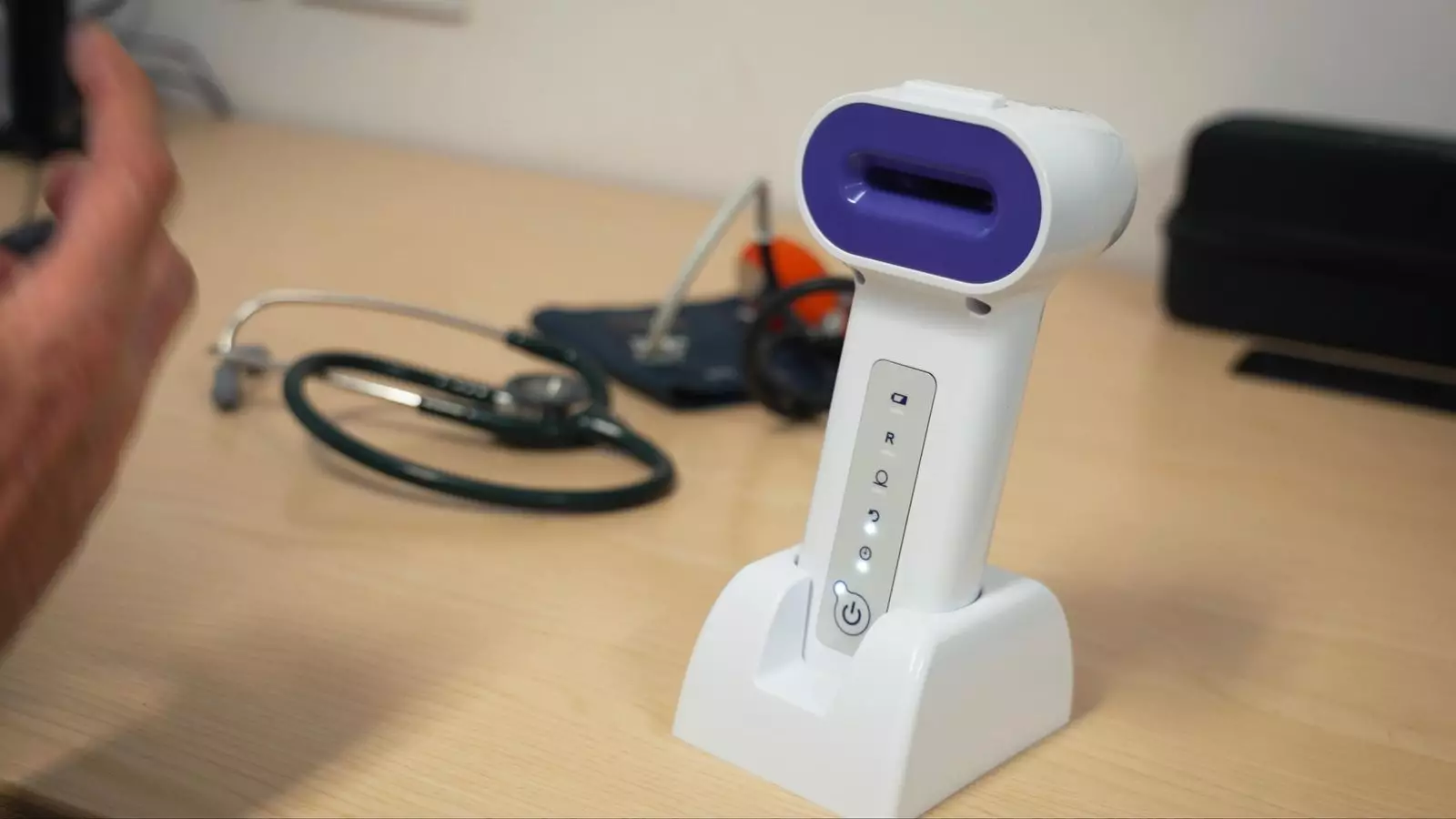Chronic Obstructive Pulmonary Disease (COPD) remains a silent adversary, afflicting around 3 million people in the UK, yet two-thirds of individuals with this debilitating condition remain unaware of its presence. This oversight is not merely a statistical abstraction; it has severe repercussions, including the fact that COPD ranks as the second most prevalent cause of emergency hospital admissions in the country. The failure to recognize such an insidious disease raises several alarm bells—especially in a health system struggling to balance its budget and deliver timely care.
Currently, confirming a COPD diagnosis requires an invasive spirometry test. Patients undergo a grueling protocol that can take up to half an hour, not to mention the time spent waiting for an appointment. The entire process can be exhausting and discouraging, leading patients like Colin Best of Suffolk to endure months—or even years—of uncertainty. By the time a diagnosis is reached, many patients have already suffered significant health setbacks that could have been mitigated through timely intervention.
AI to the Rescue: A Game-Changer for Diagnosis
Enter the N-Tidal Diagnose, a handheld testing device that promises to change the COPD diagnostic landscape dramatically. With this innovation, patients can waltz into their doctor’s office and discover in as little as five minutes whether their chronic cough and shortness of breath stem from COPD. This rapid turnaround could mean the difference between early intervention and delayed treatment, which can lead to inevitable complications, including hospitalization.
Dr. Simon Rudland, a GP in Suffolk, encapsulates the excitement surrounding this breakthrough technology. The N-Tidal Diagnose eliminates the cumbersome hub-and-spoke model that currently defines spirometry testing, allowing for faster and more efficient diagnoses. More importantly, it empowers doctors by enabling them to prescribe treatments promptly, preventing patients from being misdiagnosed or improperly medicated.
The implications of quicker, more accurate diagnoses cannot be overstated. COPD is a progressive condition that, while not curable, is manageable with early and appropriate care. Waiting for diagnostic confirmation can prove detrimental; flare-ups lead to one in eight COPD patients requiring hospitalization. Tragically, many of these individuals aren’t even aware they have the disease until it spirals out of control. The urgency to diagnose and treat is clear.
Transformative Technology for a Strained Healthcare System
The advent of this technology is not just a leap forward for patient care; it’s also a significant win for the cash-pressed National Health Service (NHS). By streamlining the diagnostic process and rapidly addressing COPD cases, the NHS could prevent a considerable number of emergency admissions, thereby easing its financial strain.
Dr. Ameera Patel, head of TidalSense, the company behind the N-Tidal Diagnose, adds a noteworthy detail: they have amassed over 2.5 million patient breath samples encompassing various cardio-respiratory conditions. With advanced AI algorithms trained to differentiate COPD from other respiratory ailments like asthma or lung cancer, the N-Tidal Diagnose could substantially raise the accuracy of initial diagnoses. This could lead to a healthcare revolution that provides accurate assessments without the exhaustive testing that often plagues current methods.
Adding to the accessibility of this new test is the minimal training required to operate it. Within just ten minutes, healthcare staff can learn to use the device effectively. This ease of use means that even in resource-challenged settings, healthcare professionals can quickly become proficient, leading to wider dissemination of this life-changing technology.
A Call for Action and Awareness
While the N-Tidal Diagnose offers hope, it also serves as a clarion call for heightened awareness around COPD. It is imperative that public health campaigns emphasize the symptoms of this often-overlooked condition. Many, like Colin Best, suffer through lengthy diagnostic journeys; with effective education, others might seek help sooner.
Ultimately, this innovation serves as a microcosm of what our healthcare system could achieve when it embraces technology intelligently. Rapid diagnosis and treatment for COPD stand not just as a lifeline for millions but as a model for future healthcare advancements that put patients first, reduce costs, and elevate the standard of care across the board. A world where a serious disease like COPD can be diagnosed in just five minutes is not just aspirational; it’s our responsibility to pursue it relentlessly.

Leave a Reply